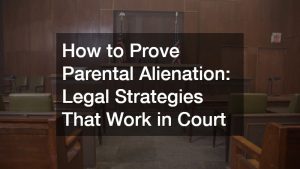- Divorce has profound effects on children, ranging from emotional turmoil to significant lifestyle changes.
- Legal implications of divorce can exacerbate children’s stress, with necessary involvement in custody arrangements and court proceedings.
- Divorce mediation, co-parenting, counseling, and prioritizing children’s needs can minimize the negative impact.
- Parents’ conscious efforts can shield children from the harsh repercussions of divorce, ensuring stability and security.
Divorce is a difficult and life-altering experience for everyone involved, especially for the children. Studies have shown that kids from divorced families have an increased risk of numerous behavioral and emotional problems. While divorce can have a significant financial and emotional impact on you and your soon-to-be ex, the impact on a child can be far greater. Therefore, it is important to understand how a divorce can affect your child so you can help them through this difficult time. This blog will discuss a few ways that divorce can impact your child legally.
Custody arrangements

Custody arrangements can have a significant impact on the child’s life. The child may feel like they have to choose between their parents, which can be emotionally traumatic. Custody arrangements can also cause changes in their routine and living situation. For example, if the child’s custody arrangement is that they stay with one parent during the week and with the other parent on the weekends, this may lead to instability and inconsistency.
Financial changes
A divorce can often cause financial changes in a family. Single-parent households with a reduced income are more likely to be living in poverty. Children from low-income families may face difficulties with nutrition, healthcare, education, and access to other support systems.
Changes in living situation
A divorce can lead to changes in the living situation of a child. They may have to move to a new home and leave their home and familiar surroundings. This can cause emotional stress, which can affect their academic performance and social interactions. Moving can also lead to changes in school, which can be especially difficult for a child.
Emotional turmoil
Children from divorced families are more likely to experience emotional turmoil and exhibit behaviors like depression, anxiety, stress, and anger. They may feel angry, confused, or like they are the cause of the divorce. This can affect their self-esteem and their ability to trust others. In some cases, children may internalize their feelings, leading to more serious mental health issues later in life.
Legal implications
A divorce can also have legal implications for the child. With custody arrangements, child support, and visitation schedules, the legal proceedings of a divorce may cause unwanted stress. In addition, the legal process can only add to the already emotional turmoil of a child.
They may have to testify in court or be interviewed by a guardian ad litem. These situations can often further exacerbate the child’s feelings of neglect, abandonment, and fear. Fortunately, there are plenty of things that can be done to avoid or minimize the legal implications of divorce on a child. Here are four things that can help:
Divorce mediation.
Divorce mediation can help minimize the legal stress on a child by providing an alternative to traditional divorce proceedings. This process involves both parties working together with a neutral mediator to come to an amicable agreement. This approach allows for better communication and cooperation, which is essential in co-parenting.
Just make sure you get the best divorce mediation attorney that you can find. A skilled divorce mediator will help make the process as painless as possible for your child. They will also ensure that you and your ex-spouse can work together to come up with a parenting plan that is in the best interests of your child.
Co-parenting.

Co-parenting can also help reduce the legal implications of divorce on a child. By working together with your ex-partner to make important decisions about your child’s life, you can avoid unnecessary legal battles and create a more stable environment for your child.
Seek counseling or therapy.
Seeking counseling or therapy for yourself and your child can be incredibly beneficial during and after a divorce. A therapist can provide support, guidance, and coping strategies for dealing with the changes and emotions associated with a divorce.
Ensure their needs are met.
As a parent, it is important to prioritize your child’s needs and make sure they are being met during this difficult time. This includes providing emotional support, maintaining consistent routines, and ensuring they have access to necessary resources like healthcare, education, and other services.
Navigating the upheaval of divorce can be a challenging journey, not just for the parents but also for the children involved. However, with a conscious effort to minimize the impact, the potential harm inflicted on the child can be significantly reduced. By opting for mediation over litigation, practicing effective co-parenting, seeking counseling or therapy, and committing to meet the child’s needs, parents can help ensure the transition is as smooth as possible.






